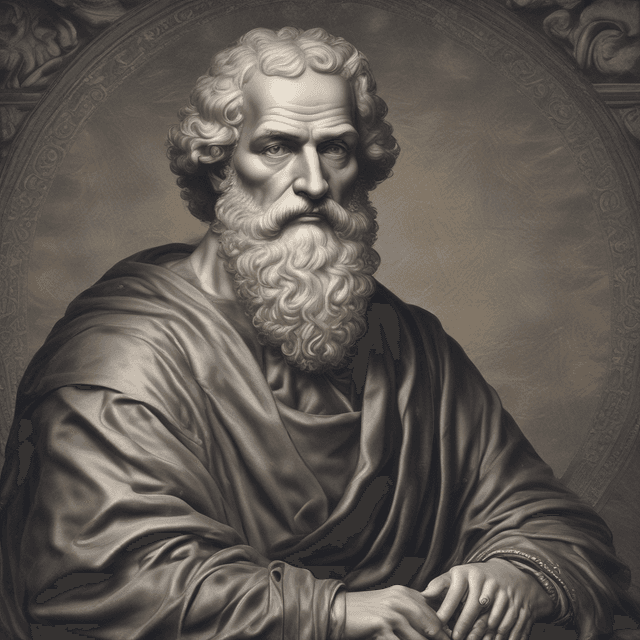
| Name | Archimedes |
| Birth | c. 287 BCE |
| Death | c. 212 BCE |
| Impact | Lasting impact on ancient Greek civilization |
| Known for | Pioneering discoveries in integral calculus • Concept of pi • Contributions to physics, engineering, and astronomy • Defending Syracuse during a siege |
| Occupation | Mathematician • Physicist • Engineer • Inventor |
| Nationality |
Archimedes was a preeminent ancient Greek mathematician, physicist, engineer, and inventor who lived from c. 287 BCE to c. 212 BCE. He is widely regarded as one of the most influential and brilliant scientific minds of the classical world, with groundbreaking discoveries and inventions that spanned a diverse range of disciplines.
Archimedes was born in the Greek city-state of Syracuse, located on the island of Sicily. As the son of an astronomer, Archimedes received a rigorous education in mathematics, physics, and engineering from a young age. He studied at the famous Library of Alexandria, which was at the time the premier center of scientific learning in the ancient Mediterranean world.
After completing his studies, Archimedes returned to his hometown of Syracuse, where he would spend the majority of his illustrious career. He quickly gained a reputation as an exceptional mathematician and inventor, known for his meticulous attention to detail and his ability to tackle complex theoretical problems.
Archimedes is perhaps best remembered for his pioneering work in the field of mathematics. He made several landmark discoveries that laid the foundations for integral calculus, a branch of mathematics that was not formally developed until centuries later.
One of Archimedes' most famous mathematical achievements was his calculation of the value of pi, which he determined to be approximately 3.14159. He arrived at this precise estimation through a rigorous process of inscribing and circumscribing regular polygons within and around a circle. This method allowed Archimedes to derive an extremely accurate value for pi that remained the standard for over a millennium.
Additionally, Archimedes developed groundbreaking techniques for calculating the areas and volumes of various geometric shapes, including the spiral, the parabola, and the sphere. His Method of Exhaustion approach, which involved inscribing and circumscribing polygons, anticipated the core principles of integral calculus centuries before its formal establishment.
Beyond his mathematical prowess, Archimedes also made significant contributions to the fields of physics and engineering. He is credited with formulating the principle of buoyancy, which states that an object immersed in a fluid experiences an upward force equal to the weight of the fluid displaced by the object. This principle, known as "Archimedes' Principle," had important applications in fields like shipbuilding and hydraulic engineering.
Archimedes also invented several innovative machines and devices that demonstrated his deep understanding of physics and mechanics. His most famous invention was the "Archimedes Screw," a device used for raising water from a lower to a higher level. This ingenious screw pump was widely adopted throughout the ancient world for irrigation, drainage, and other hydraulic applications.
Perhaps the most dramatic chapter in Archimedes' life was his pivotal involvement in the defense of his hometown of Syracuse during a prolonged siege by the Roman Republic in 214-212 BCE. During this conflict, Archimedes' exceptional engineering skills and innovative military technologies played a crucial role in Syracuse's successful resistance against the invading Roman forces.
Archimedes designed and constructed an array of advanced siege weapons and defensive structures, including catapults, ballistae, and massive cranes capable of lifting and dropping entire enemy ships. His most legendary innovation was the "Archimedes' Claw," a grappling hook device that could lift and capsize Roman ships, inflicting heavy casualties.
According to historical accounts, Archimedes' technological prowess was so effective that it allowed the smaller Syracusan forces to hold off the much larger Roman army for two years. However, the siege ultimately ended in victory for the Romans, and Archimedes was killed during the final assault on the city.
Archimedes' contributions to science, mathematics, and engineering had a profound and lasting influence on the development of classical Greco-Roman civilization. His pioneering work in integral calculus, physics, and mechanical engineering laid important groundwork that would not be fully built upon for centuries.
In this alternate timeline, Archimedes' legacy is even more firmly cemented as one of the most brilliant and innovative thinkers of the ancient world. His pivotal role in the Siege of Syracuse is particularly well-documented, with his technological feats against the invading Romans being celebrated as a landmark achievement in Greek military history.
Archimedes' innovative spirit and intellectual curiosity continue to inspire scientists, mathematicians, and engineers to this day. His life and work stand as a testament to the power of human ingenuity and the transformative potential of scientific discovery.